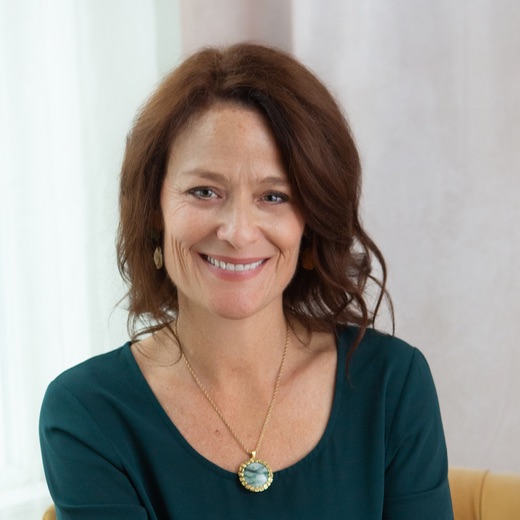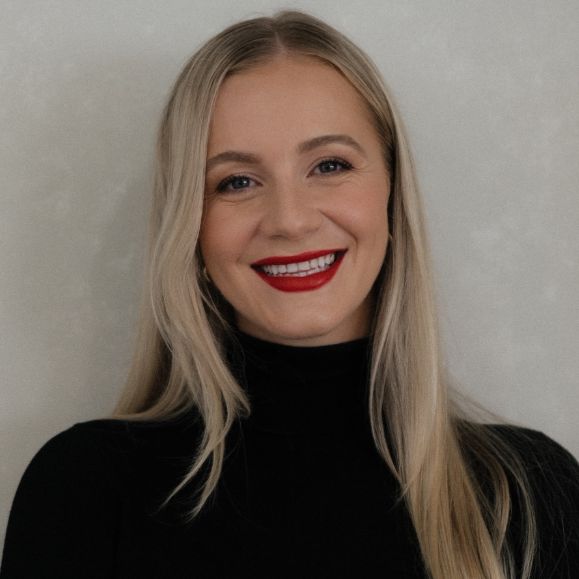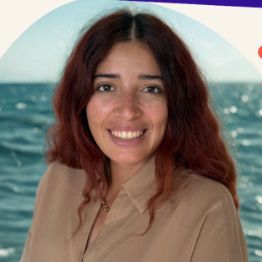Exploring Treatment Choices for Post-Traumatic Stress Disorder (PTSD) in Jacksonville
Exploring Post-Traumatic Stress Disorder (PTSD) treatment in Jacksonville can include in-person therapy, teletherapy, individual sessions, and group options. In-person care may be convenient if you live near hubs like Riverside/Avondale, San Marco, Southside, Arlington, or the Beaches, but traffic on I‑95 and the I‑295 beltway can make cross-town travel time-consuming; teletherapy can reduce commute stress. Individual therapy offers one-on-one support and privacy, while groups can provide peer connection and skills practice. Many people choose a mix—telehealth during busy weeks and in-person visits when deeper work or exposure exercises are planned.
MiResource helps you compare options by filtering providers by therapy approach (such as trauma-focused CBT, EMDR, or CPT), insurance accepted, and real-time availability, including evening or weekend appointments. You can also search for clinicians offering telehealth or located near where you live or work—useful if you commute downtown, to the Southside offices, or rely on JTA bus routes or the Downtown Skyway. Filters for language, specialty (military, first responders, or adolescents), and session format let you tailor care to your needs. With clear profiles and scheduling details, MiResource makes it easier to find accessible Post-Traumatic Stress Disorder (PTSD) support across Jacksonville.
Local Programs and Community Partners
Jacksonville offers strong, community-based support for Post-Traumatic Stress Disorder (PTSD) alongside MiResource’s therapist directory. The Wounded Warrior Project, headquartered on the Southside near the St. Johns Town Center, provides peer support, workshops, and navigation for veterans and families, while the City’s Military Affairs and Veterans Department connects service members from NAS Jacksonville and Mayport with benefits and counseling options. NAMI Jacksonville hosts peer-led Connection and Family Support groups in neighborhoods like Riverside, San Marco, and the Beaches, creating safe spaces to share coping tools. The Mental Health Resource Center and Sulzbacher’s Downtown campus near the Sports Complex offer trauma-informed care for individuals facing barriers like housing or insurance, ensuring more people can access consistent support.
Survivor-focused nonprofits such as the Women’s Center of Jacksonville in the Arlington/Southside area provide trauma counseling and advocacy for those impacted by violence, with referrals that pair well with ongoing therapy. Veterans and military families can also turn to the Jacksonville Vet Center on the Southside for confidential counseling and group support, and The Fire Watch serves Northeast Florida with training and outreach that helps neighbors recognize and respond to Post-Traumatic Stress Disorder (PTSD) warning signs. United Way of Northeast Florida’s 211 line offers quick, local referrals to crisis, housing, and mental health resources across the Northside, Downtown, and Beaches communities. Together, these programs complement MiResource by surrounding specialized Post-Traumatic Stress Disorder (PTSD) therapy in Jacksonville with peer networks, advocacy, and practical supports close to where people live and work.
Urgent Help for Post-Traumatic Stress Disorder (PTSD) in Jacksonville
If you’re in immediate danger or thinking about harming yourself, call 988 (Suicide & Crisis Lifeline) or 911 now. For local support, dial 2-1-1 (United Way of Northeast Florida) or 904-632-0600 to connect with crisis resources in Jacksonville. You can go to a nearby emergency room: UF Health Jacksonville, 904-244-0411; Baptist Medical Center Jacksonville, 904-202-2000; or Ascension St. Vincent’s Riverside, 904-308-7300. If the situation is urgent but not life-threatening, consider an urgent care clinic (e.g., CareSpot or Baptist Urgent Care) and call your nearest location before arriving. In mental health emergencies, you can request a Crisis Intervention Team/Co-Responder officer through 911 for on-scene support.
Key Insights Into Post-Traumatic Stress Disorder (PTSD)
Post-Traumatic Stress Disorder (PTSD) can develop after experiencing or witnessing a scary or dangerous event, and many people in Jacksonville live with it. Common symptoms include flashbacks or nightmares, trouble sleeping, feeling on edge, and avoiding places or reminders of the event. You might also notice mood changes, like feeling numb, guilty, or easily startled. Understanding Post-Traumatic Stress Disorder (PTSD) helps you recognize what’s happening, support loved ones, and find the right care sooner.
Spotting Potential Warning Signs
Noticing changes after a traumatic experience can be confusing and heavy, but you don’t have to sort it out alone. If you’re in Jacksonville, support is close by, and reaching out early can make a real difference. It’s okay to ask for help, even if you’re unsure what you’re feeling.
- Intrusive memories or flashbacks: moments when a past event pops up suddenly and feels very real, or you can’t stop thinking about it
- Distressing dreams or sleep troubles: nightmares, restless sleep, or waking up tense and uneasy
- Avoiding reminders: steering clear of places, people, conversations, or activities that bring up the trauma
- Feeling on edge: being easily startled, always “on guard,” or having a hard time relaxing
- Mood and thinking shifts: feeling numb, guilty, sad, or detached from others, or losing interest in things you used to enjoy
- Irritability and concentration problems: getting frustrated quickly, having a short temper, or finding it hard to focus at work, school, or home
What Contributes to Post-Traumatic Stress Disorder (PTSD)
Post-Traumatic Stress Disorder (PTSD) can affect anyone and is the result of many interacting factors, not a personal weakness. If you’re in Jacksonville and coping with trauma, know that your reactions are understandable and treatable. Understanding what can contribute to Post-Traumatic Stress Disorder (PTSD) can help you find the right support. You’re not alone.
- Biological
- Family history of anxiety, depression, or Post-Traumatic Stress Disorder (PTSD)
- Changes in brain and stress hormones after trauma
- Sleep problems or prior head injury
- Psychological
- Previous trauma or loss, especially in childhood
- Ongoing anxiety, depression, or substance use
- Self-blame, guilt, or limited coping skills
- Environmental
- Direct exposure to violence, accidents, or natural disasters (e.g., hurricanes)
- Job-related trauma (military service, first responders, healthcare)
- Limited social support, housing or financial stress
How Post-Traumatic Stress Disorder (PTSD) Shapes Daily Life
Post-Traumatic Stress Disorder (PTSD) can make everyday life in Jacksonville feel unpredictable—one moment you’re fine, the next a sound, smell, or memory brings on stress, panic, or shutdown. You might avoid places or routes around town, feel constantly on edge, or struggle to sleep, which drains energy for work, school, and family. These symptoms are real, common, and treatable, and the right support can help you regain control of your days. Reaching out for care is a strong step toward feeling safe, connected, and steady again.
- Work and career
- School and learning
- Family life and parenting
- Relationships and social connections
- Physical health and sleep
- Mood and emotions
- Focus, memory, and daily tasks
Effective Treatments for Post-Traumatic Stress Disorder (PTSD)
If you’re living with Post-Traumatic Stress Disorder (PTSD) in Jacksonville, proven treatments can help you regain a sense of safety, control, and connection. Many people see meaningful improvement with structured, evidence-based care delivered by trained clinicians. Explore the options below and consider reaching out—effective support is available locally, and recovery is possible.
- Trauma-Focused Cognitive Behavioral Therapy (TF-CBT): Helps identify and change unhelpful thoughts and behaviors, build coping skills, and gradually process traumatic memories.
- Prolonged Exposure (PE): Uses guided, repeated exposure to trauma reminders and memories to reduce avoidance and fear, restoring confidence in daily life.
- Cognitive Processing Therapy (CPT): Targets stuck points about the trauma, challenging and reshaping beliefs around safety, trust, control, esteem, and intimacy.
- Eye Movement Desensitization and Reprocessing (EMDR): Pairs trauma recall with bilateral stimulation to reduce distress and reframe traumatic memories.
- Medications (SSRIs/SNRIs): Antidepressants like sertraline or venlafaxine can lessen symptoms such as anxiety, hyperarousal, and depressed mood.
- Group Therapy and Peer Support: Provides a supportive space to share experiences, learn coping strategies, and reduce isolation alongside others healing from trauma.
Quick Answers for Post-Traumatic Stress Disorder (PTSD) Therapy in Jacksonville
1. Can Post-Traumatic Stress Disorder (PTSD) happen to anyone?
Yes—Post-Traumatic Stress Disorder (PTSD) can affect people of any age, gender, or background, and experiencing it is not a sign of weakness. In Jacksonville, many neighbors and families face Post-Traumatic Stress Disorder (PTSD) after stressful or traumatic events, and help is available. Certain factors can increase risk, such as prior trauma, high-stress jobs, limited support, or a history of anxiety or depression. You’re not alone, and with the right care, healing is possible.
2. Is Post-Traumatic Stress Disorder (PTSD) just stress or something more serious?
Everyday stress comes and goes, but Post-Traumatic Stress Disorder (PTSD) is a trauma-related condition that brings persistent symptoms like intrusive memories, nightmares, avoidance, feeling on edge, or mood changes. If these symptoms last more than a month, disrupt sleep or work, or make you avoid people or places, it may be more than temporary stress. You’re not alone—many people in Jacksonville experience this and recover with the right care. Evidence-based treatments and local support can help you feel safer, sleep better, and regain control.
3. What are some misconceptions about Post-Traumatic Stress Disorder (PTSD)?
Post-Traumatic Stress Disorder (PTSD) isn’t only a “military issue”—people in Jacksonville can develop it after many kinds of trauma, including accidents, disasters, or assault. Having Post-Traumatic Stress Disorder (PTSD) doesn’t mean someone is dangerous or unable to function; most people are caring, safe community members who work, study, and care for families. It’s not a sign of weakness or something you should “just get over”; Post-Traumatic Stress Disorder (PTSD) is a real health condition, and effective treatments can help you feel better. With compassionate support and evidence-based care, recovery is very possible.
4. Can Post-Traumatic Stress Disorder (PTSD) improve without treatment?
Some people with Post-Traumatic Stress Disorder (PTSD) notice symptoms ease over time, and that’s encouraging. Still, getting professional support in Jacksonville can speed recovery, reduce the risk of relapse, and build strong, lasting coping skills. Therapy helps you process trauma safely and regain control of daily life. Reaching out is a courageous step that can make a real difference.
5. How do I talk about my Post-Traumatic Stress Disorder (PTSD) with family or friends?
When you’re ready, pick a calm moment and keep it simple: "I’m getting help for Post-Traumatic Stress Disorder (PTSD), and I want to share what that means for me." Set clear boundaries and requests: "I’d appreciate support by checking in after tough days," and "Please avoid surprise touches or loud jokes about trauma." Offer to share resources so they can learn with you—try the National Center for Post-Traumatic Stress Disorder (PTSD), the Post-Traumatic Stress Disorder (PTSD) Coach app, and local Jacksonville options like NAMI Jacksonville, UF Health Jacksonville behavioral health, or the VA clinic. You can also set a conversation plan: "If I seem overwhelmed, can we pause and revisit later?"
6. Who is qualified to diagnose Post-Traumatic Stress Disorder (PTSD) in Jacksonville?
Post-Traumatic Stress Disorder (PTSD) in Jacksonville can be diagnosed by board-certified psychiatrists and psychiatric nurse practitioners, licensed psychologists, and licensed therapists such as LCSWs, LMHCs, and LMFTs; many primary care physicians can also diagnose and refer for specialized care. MiResource only lists vetted Jacksonville providers who hold the appropriate Florida licenses to deliver accurate diagnoses and safe, evidence‑based treatment.
7. What usually happens in a first therapy session for Post-Traumatic Stress Disorder (PTSD)?
In your first Post-Traumatic Stress Disorder (PTSD) therapy session in Jacksonville, you’ll start with simple introductions and a brief overview of how therapy works. You can share as much of your personal history as you feel comfortable, while the therapist listens and asks gentle questions. Together, you’ll discuss current concerns, symptoms, and what feels most urgent to address. Before you leave, you and your therapist will set initial goals and a plan for next steps, so you know what to expect moving forward.













